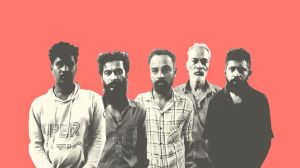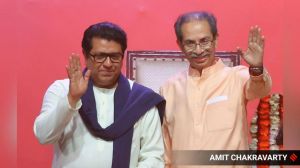A few good men
Be it the Indo-Pak war of 1971 or Kargil war of 2000. Be it the 2008 Mumbai terrorist attack or the very recent Leh Flood,time and again...
Three Pune-based retired army officers,who served in both the British and the Indian Armies share their unique experiences including the elation of independence and the trauma of partition in 1947
Be it the Indo-Pak war of 1971 or Kargil war of 2000. Be it the 2008 Mumbai terrorist attack or the very recent Leh Flood,time and again,the Indian Army has given us a number of reasons to salute its brave soldiers and be proud of them. Not many know that Pune is home to a few officers,who have also served under the British Army,pre-independence. They had the privilege to learn the best from both – British Army and the Indian Army. Having retired from the services decades ago,three such army officers share their experiences of both the eras.
Maj Gen Anand Govind Kanetkar (retd) AVSM,86- years-old
Even though the country attained independence on August 15,1947,Maj Gen (retd) Anand Govind Kanetkar could not witness the joy and celebration and stayed away from his motherland for as long as 10 months during that period. The reason was that he was posted at Kakul (Pakistan) before independence. Since independence and partition were followed by the riots,our seniors did not consider the time appropriate to shift officers from Kakul, remembers Kanetkar. Later on too,when they were asked to move,it was by way of a strictly secretive plan. At the age of 24,Kanetkar was assigned the task of moving 80 people safely from Kakul to Delhi by Field Marshall Sir Claude Auchinleck,who was responsible for the overall command for unified force prior to partition.
So,how was it to visit a free India after nearly 10 months? I remember,when our train reached Atari,which is a small town in Amritsar district near the border with Pakistan,we were all welcomed by the civilians,who distributed fruits and sweets amongst us, says 86-year-old,Kanetkar,who was commissioned in December 1943 as a Second Lieutenant at Army Service Corps.
According to Kanetkar,the change from British Army to Indian Army was not ‘sudden’ and he cherished sharing a great time and friendship with some of the British soldiers. He holds them in high regard for the grace they portrayed during the partition and while they were in command. Kanetkar was awarded AVSM in the year 1971. He retired on August 1,1979 after serving in the army for 36 years.
Maj Jayawant Ramchandra Rege (retd),98-years-old
“When I was posted at Arakan (Burma),a few of my fellow officers and I heard the news that Netaji Subhash Chandra Bose is coming to Arakan and the task of catching him was given to another regiment. As the troupes from that regiment marched on the road that was opposite our quarters,my colleagues and I came out to see them pass. Though it was unethical but in our hearts,we all were praying that Netaji should not get caught,” recalls 98-year-old Rege,the oldest living retired army officer from the Maratha Light Infantry.
For Rege,the transition from the British Army to the Indian Army was a smooth one,barring some minor changes. The word of command like ‘attention’ was replaced by ‘saavdhan’. There was also a sudden change in the menu and the dining habits at the mess, says Rege. He points out that the discipline observed by the Britishers was unbeatable. Stating the name of one such officer under whom Rege worked was Lt Col Gilan of 2nd Baroda Infantry. A very good sportsman,he commanded us during my service at Burma and Thailand. He left a mark on my mind for the leadership qualities he naturally possessed, adds Rege.
Maj S T Appachana (retd),93-years-old
Time and age must have faded a major chunk of the memories of his army days but what impresses you is the fact that at 93,Maj S T Appachana (retd) remembers the exact day,month and the year when he got commissioned. “On June 13,1943,I was commissioned at Dogra Regiment,Jalandhar and in 1946 I was shifted to 2nd Para Maratha Regiment. I retired on Jan 1,1967,” he says.
Condescending is exactly the word Appachana uses to describe the period when he served under the British Army. Though he always admired the British officers for the fairness they showed towards all the officers,Appachana does admit that once India gained independence,all the confusion in the minds of Indian officers was permanently erased. According to Appachana,the Indian officers were treated well but the Britishers made no efforts to hide their feelings of superiority. Recalling the times of partition,he says,”I was then posted at Jhelum. As an officer,I was neutral,but as a person,the partition hurt me deeply.”







